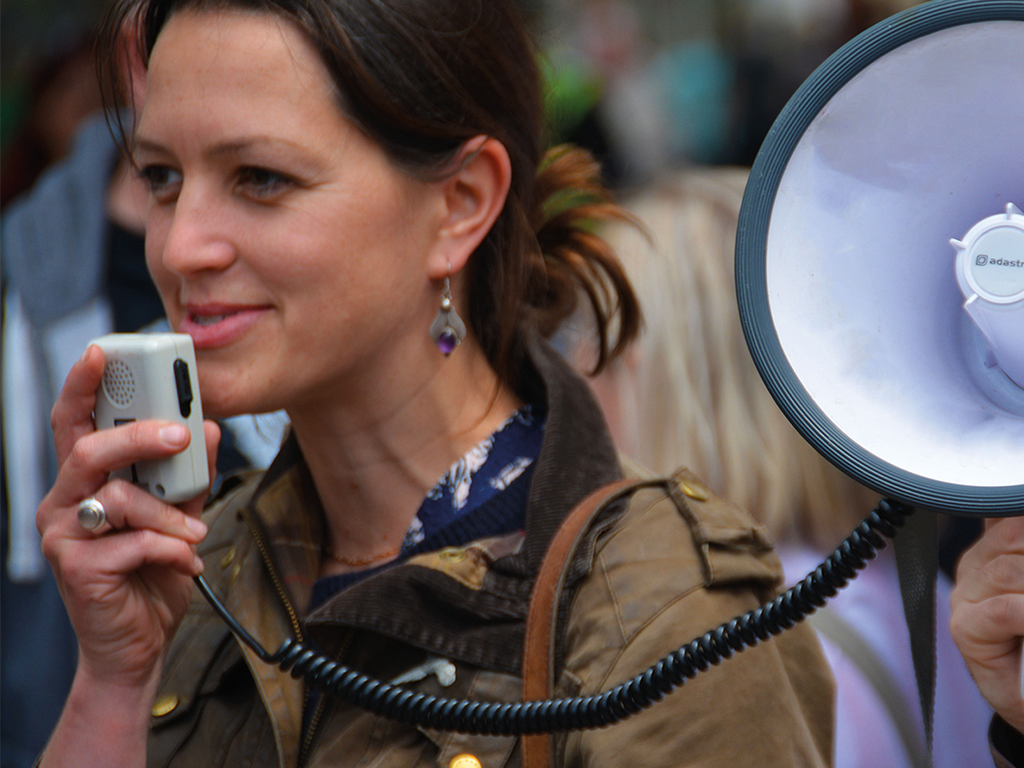 Politics / Civics
Politics / Civics


46500899 / 55500655
Freedom of Speech
A Fundamental Right
In 1948 the United Nations General Assembly passed the “Universal Declaration of Human Rights”.
Quote Katarina Barley, Federal Minister of Justice:
“As the term suggests, human rights are characterised by the fact that they apply to all human beings. THIS is the most important aspect. No matter how old you are, where you live, whether you are male or female, whatever your skin colour is, what your religion is etc. Human rights are the rights that truly every single human being is entitled to.”
Article 19 of the Universal Declaration of Human Rights (UDHR) protects the right of all human beings to freedom of opinion and expression, including the right to impart their opinion and to hear the opinions of others.
Thus, Article 19 prohibits state censorship.
Beyond that, Article 19 protects the right to seek and receive information. The intention is to prevent the deliberate isolation of a state, for instance with regard to searching for information on the Internet.
However, the UN Human Rights Charter is only a resolution of the UN General Assembly – it is not legally binding.
In 1950 the European “Convention for the Protection of Human Rights and Fundamental Freedoms” was passed based on the Universal Declaration of Human Rights of the United Nations.
In addition to freedom of information, freedom of the press and broadcasting, Article 10 of the European Convention on Human Rights ensures the universal right to freedom of expression, which everyone is entitled to.
In Germany, freedom of speech is guaranteed as a fundamental right in Article 5 of the Basic Law. This right includes forming your own opinion as well as expressing and spreading it. No one must be put under pressure, threatened or prevented in any other way from doing so. Everyone may express their opinion in different ways. This includes demonstrations, wearing badges or posting bills as long as it does not violate any other laws.
Quote Katarina Barley, Federal Minister of Justice:
“Article 5 of the Basic Law lists numerous rights, freedom of speech being one of them, but also freedom of the press, for instance, freedom of teaching and science – this is a major, an essential fundamental right. An important aspect is that the fundamental rights always apply vis-à-vis the state. They are no rights that you can assert against private people.”
Quote Friedrich Merz, Lawyer and Politician (CDU):
“23 May 2019 will be the 70th anniversary of the Basic Law – this is the longest period ever during which we have ever had a constitution in Germany in times of peace. More than two generations have not known anything else than the Basic Law with all freedoms that are part of it. But there’s another side of the coin. The other side is that we have all got used to it and take it as a matter of course. But it is not a matter of course. And if we take a look at the news, we can see what is going on in the world around us and to what extent freedom of speech is being restricted. In other words: It is not a matter of course, and if it isn’t, then we all have to show some commitment together so that it will stay the way it is today. And this also applies to Germany.”


Curriculum-centred and oriented towards educational standards
Matching
Stalking
n Germany, 12 % of all federal citizens are pursued by a stalker once in their lives. And not only celebrities are among their victims! Everyone may be confronted with such a situation.
Seal of approval
Quality seals such as the "Bio-Siegel", "Blauer Engel", "Stiftung Warentest" and up to 1,000 other seals represent characteristics such as sustainability, health or safety with regard to a product, a service or even a company.









